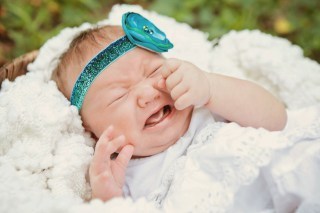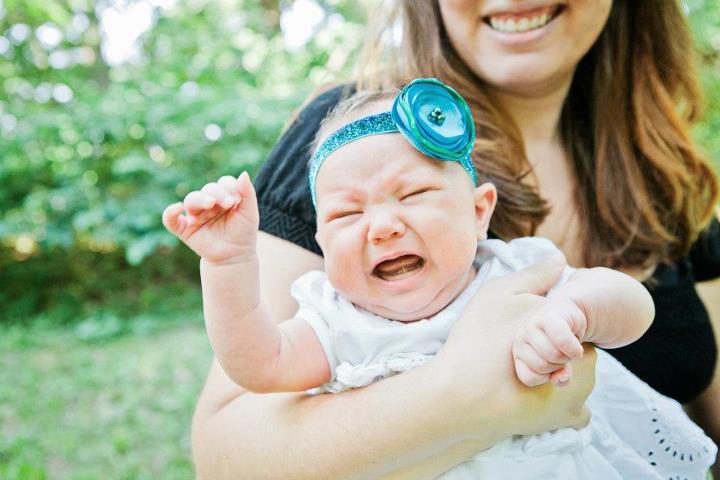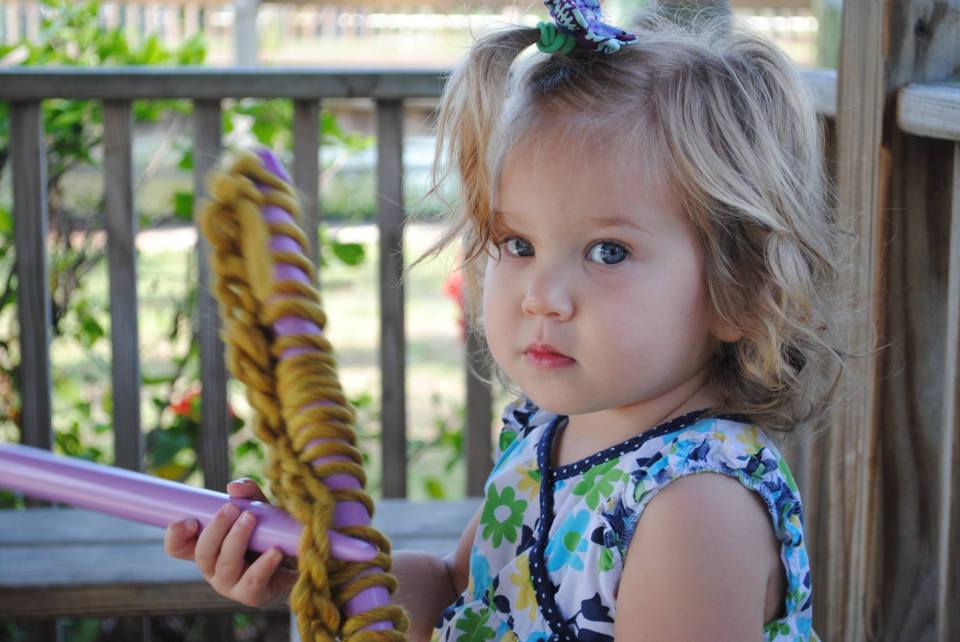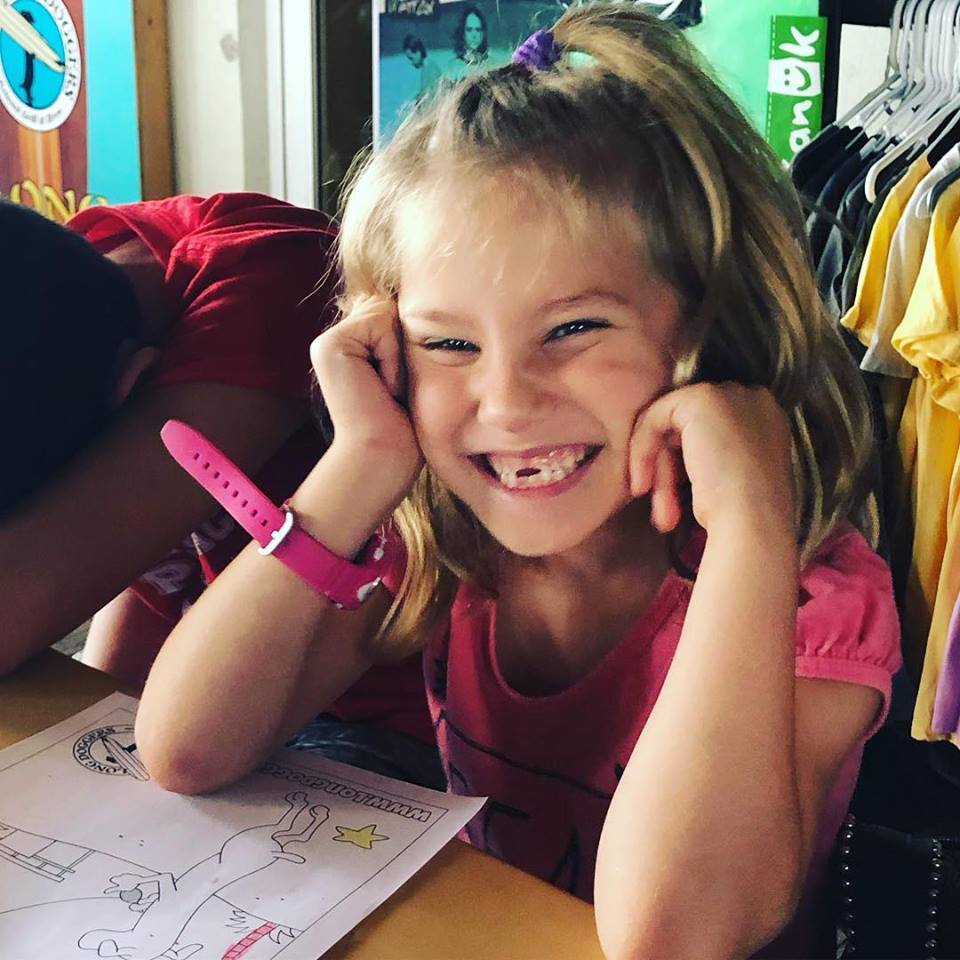
My daughter Erinn is 7 today. If you’ve been reading this blog from the beginning, you’ve probably read a few of my pieces on Erinn and her high needs childhood, thus far. If you missed those posts, you can click below to check them out:
- High Needs Baby: It’s Not Me, Really
- 6 Months of a High Needs Baby
- High Needs Toddler Years
- 5 Years of High Needs: The Bright Side
Today is another update as this sweet, sensitive girl turns 7.

Erinn was a baby who came into the world screaming, red-faced, and stayed that way for months. She didn’t like to sleep. She didn’t like to be set down and rejected pacifiers, bottles, bouncey seats, strollers and car rides (well, she hated them though some were necessary). My husband and I took turns wearing her 8 to 10 hours per day, with her baby body always facing forward or she’d scream. We already had three other children, still very young themselves, and handling Erinn during those early days was an exhausting labor of love. With each age her demeanor got easier but even as a toddler, there were some LONG days and nights.

In those long early days of parenting Erinn, as I looked online for answers and tricks on how to improve what I perceived to be her flaws, I came across the concept of a high-needs baby. Coined by Dr. William Sears, the term refers to a child that has no physical issues but is just SUPER darn difficult to please (paraphrasing). Parents of high-needs babies often feel guilty complaining or feeling resentment towards their perfectly healthy children — but I’ve been in those trenches and a child that needs constant attention and is unhappy all of the time is a difficult. Period.
Along with other parents on message boards asking desperately for help to soothe their little ones, I saw a lot of optimistic messages from parents whose high-needs children were older – toddlers, teenagers, even college students. The common thread of advice among these veteran parents was this: hang in there because high-needs babies grow up to be independent, confident and delightful children and adults. These parents advised the rest of us to stop trying to change our little ones or game the system with devices or routines or foods. One parent commented:
Just accept that it is difficult right now and invest yourself in your child.
Those words immediately changed my perception of my situation. I stopped wasting energy trying to change my child and switched my mentality to one of love and acceptance her instead. I could do hard things and certainly could do them for the benefit of my child.

Today Erinn turns 7 and I’m happy to say that all those message boards I scoured on those long early days were right. As she’s grown, she’s become more independent, more in control of emotions, and is a joy to be around. She lights up the room and isn’t afraid to share her love of all things pretty — from glitter to bows to unicorns.
Her emotions, though tempered and toned down a bit with age, are still big. When she cries, she SOBS. When she laughs, you laugh too. When she’s angry, there’s really no rationaling with her — though once she has decided on her own that she isn’t angry anymore, the grudge disappears. Erinn still does all her emotions — good and bad — big. But the negative moments are fewer and far between, and shorter when they happen.
Now that so much less time is spent analyzing Erinn’s emotions, I’ve been able to get to know her better. I have the energy to spend time with her and just have fun. She reads me the funny stories she writes, illustrated with plenty of pretty pictures. She tells me all the business of the day at school and we talk through the things that might have hurt her feelings. She sings whenever she feels like it and hangs tough with the older girls in her gymnastics class — a class she moved up to for her skill, despite being younger than the others.

I’m not the only one who is noticing all the delightful parts of this high-needs-baby-turned-first-grader. This is the year her teacher commented on her ability to learn things quickly and referred her for a gifted program. This is the year the directors of her theater program have given her more leadership roles within the group. This is the year that her friends’ parents started commenting on how much they like having her over.
When she was still a tough toddler, I wrote about how I had learned to let go of worrying about what other people “thought” she should be like, or their expectations of her behavior or my interactions with her. I owned my parenting of Erinn, backed with the research I’d read and founded on intuition, not rigid rules. My husband and I tried to facilitate Erinn finding her own milestones, in her own time, which took a lot of stress off ourselves. I learned to stop worrying what other people thought was best for my child and just do what WAS best instead.
I mention this again here because if you’re reading this, holding and swooping a high-needs baby or trying to ignore the tantrum of a high-needs toddler, know that it gets easier. Your child is not bad. You are not a bad parent. Your child needs more — not less — of your love and attention. Pour that good stuff into his or her life and one day, when you’re laughing at a silly book he or she wrote about unicorn farts, you’ll realize that those hard days were just a blip on the radar of a pretty sweet relationship with your high-needs kid.
So happy birthday, Erinn. Thank you for all the lessons you have taught me about parenting, myself and YOU so far. I look forward to these next years together.
Category: BirthdaysTags: birthday








